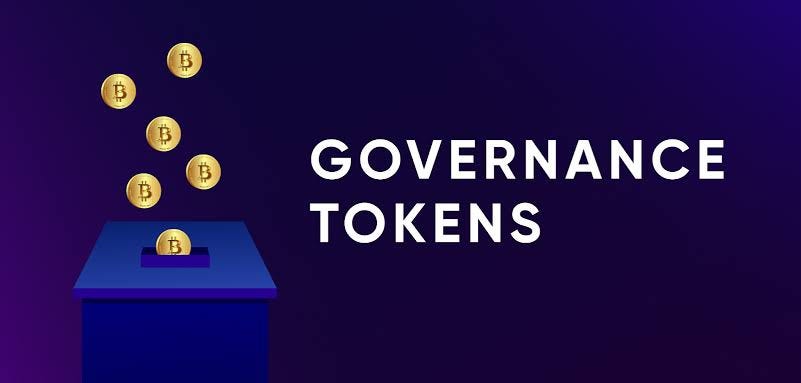Governance tokens are pivotal in the evolution of blockchain technology, serving as a mechanism to facilitate decision-making within decentralized systems. These tokens empower holders with voting rights, enabling them to influence key decisions, such as protocol upgrades or changes in the platform’s operational policies. Their significance lies in their ability to foster decentralized governance, aligning stakeholder interests and ensuring that control is distributed rather than centralized. Visit biffy.ai and you can learn about everything that you need to know and out investing and governance tokens.
The Evolution of Governance Tokens
Governance tokens emerged alongside the broader development of blockchain technology. Initially, blockchain systems operated under centralized control by their developers or founders. However, as the blockchain ecosystem matured, the need for decentralized governance mechanisms became evident.
Early implementations, like Bitcoin’s community-driven updates, demonstrated the potential of decentralized decision-making. Ethereum’s launch of the ERC-20 token standard further expanded the possibilities, paving the way for various decentralized applications (dApps) and DeFi platforms to implement their governance models. Key milestones include the launch of governance tokens like MakerDAO’s MKR and Compound’s COMP, which provided a blueprint for future innovations in governance token design and application.
How Governance Tokens Work
Governance tokens function by providing holders with voting rights, which allow them to participate in the decision-making process of a blockchain network. These tokens are typically used to vote on proposals related to protocol changes, upgrades, or other significant decisions affecting the network.
Voting systems vary, with some platforms using quadratic voting to balance the influence of large and small holders, while others rely on simple majority voting. For example, in Ethereum-based DAOs (Decentralized Autonomous Organizations), token holders can propose and vote on changes to smart contracts or funding allocations. The implementation of governance tokens ensures that decisions reflect the collective interests of stakeholders rather than a centralized authority.
Benefits of Governance Tokens
Governance tokens offer several advantages:
- Enhancing Decentralization: By distributing decision-making power among token holders, governance tokens reduce the risk of centralized control and single points of failure, fostering a more resilient and equitable system.
- Fostering Community Engagement: Governance tokens incentivize participation from a broad base of users, encouraging active involvement in the network’s development and direction.
- Aligning Incentives: Token holders are often financially invested in the success of the platform, aligning their incentives with the long-term health of the ecosystem.
Successful examples include MakerDAO, where MKR holders govern the protocol’s risk parameters, and Compound, where COMP holders vote on protocol upgrades and changes to incentive structures.
Challenges and Risks Associated with Governance Tokens
Despite their benefits, governance tokens face several challenges:
- Security Concerns: Governance mechanisms can be vulnerable to attacks, such as sybil attacks where malicious actors create multiple identities to sway votes.
- Voting Power Concentration: In some cases, large token holders may dominate decision-making, undermining the democratic nature of governance.
- Legal and Regulatory Challenges: The regulatory status of governance tokens remains ambiguous, with potential legal implications for their use and implementation.
Instances of governance token failures, such as the hack of the DAO (Decentralized Autonomous Organization) on Ethereum in 2016, highlight the need for robust security measures and well-designed governance structures.
Governance Tokens in DeFi and Beyond
In the Decentralized Finance (DeFi) space, governance tokens play a crucial role. Platforms like Uniswap and Aave utilize governance tokens (UNI and AAVE, respectively) to enable token holders to propose and vote on protocol changes, fee structures, and other critical aspects of the platform.
Governance tokens also extend beyond DeFi, integrating with various blockchain applications, including NFT platforms and decentralized marketplaces. These tokens help in managing and directing the development of these platforms, ensuring that they evolve in alignment with the community’s needs and preferences.
Comparative Analysis: Governance Tokens vs. Traditional Governance Models
Comparing governance tokens with traditional governance models reveals several differences:
- Decentralization vs. Centralization: Traditional governance models often involve centralized decision-making by executives or boards, whereas governance tokens promote a decentralized approach.
- Transparency: Blockchain-based governance processes offer transparency in voting and decision-making, contrasting with the opaque nature of many traditional governance systems.
- Participation: Governance tokens enable broader participation, allowing anyone with tokens to influence decisions, unlike traditional systems where only select individuals or groups hold decision-making power.
This comparison underscores the potential advantages of governance tokens in creating more inclusive and transparent decision-making processes.
The Future of Governance Tokens
The future of governance tokens is promising, with several potential developments on the horizon:
- Increased Adoption: As blockchain technology continues to gain traction, governance tokens are likely to see broader adoption across various sectors.
- Technological Innovations: Advancements in blockchain technology, such as layer-2 scaling solutions and improved security protocols, may enhance the effectiveness and security of governance tokens.
- Regulatory Clarity: As regulatory frameworks evolve, clearer guidelines for governance tokens could facilitate their integration into mainstream applications and ensure their legal compliance.
Governance tokens have the potential to significantly influence the future of decentralized systems, driving innovation and fostering more democratic and participatory governance structures.
Conclusion
Governance tokens are a critical component of the blockchain ecosystem, offering a decentralized approach to decision-making and aligning stakeholder interests. While they present challenges, their benefits in enhancing decentralization, community engagement, and alignment of incentives make them a powerful tool for the future of blockchain technology. As the ecosystem evolves, governance tokens are poised to play an increasingly significant role in shaping the landscape of decentralized systems.
